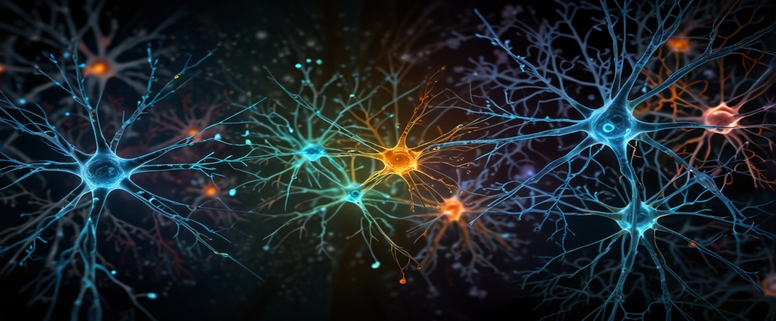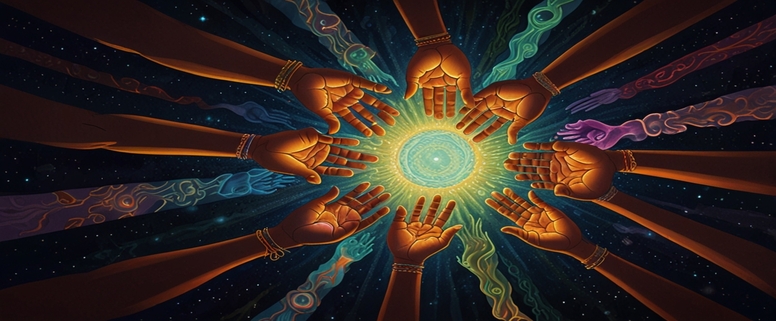Introduction: From Suffering to Insight
There is a profound alchemy in human experience that can transform our greatest struggles into our deepest wisdom. Throughout history, philosophers, spiritual teachers, and ordinary people have discovered this paradoxical truth: the very experiences we most wish to avoid often become the crucibles in which our most valuable insights are forged. What feels like breaking can become a breakthrough; what seems like ending can become beginning.
This transformation isn't automatic or guaranteed. Many people experience significant hardship without extracting meaningful growth or insight. The difference lies not in the nature of the suffering itself but in how we relate to it—whether we remain trapped within it or find pathways through it toward greater understanding and integration.
In my own journey, I've navigated significant challenges—from the neurodivergent experiences of dyslexia and ADHD to physical trauma from a serious accident and subsequent coma. These experiences initially appeared as limitations or setbacks but ultimately became sources of unique perspective and capability. The cognitive differences that made traditional education challenging led to alternative thinking patterns that now fuel my creative work. The physical trauma that threatened my life created a discontinuity in perception that opened new windows into consciousness itself.
This article explores the journey of transformation that converts struggles into wisdom. Drawing from personal experience, neuroscience, contemplative traditions, and emerging technologies, I'll examine how pain can become a teacher rather than merely a punishment, how challenges can build capacity rather than simply depleting it, and how technology can either support or hinder this transformative process.
The insights offered here aren't meant to minimize or romanticize suffering. Not all pain leads to growth, and some experiences create wounds requiring healing rather than immediate meaning-making. Rather, this perspective acknowledges the complexity of human resilience and our remarkable capacity to integrate difficult experiences into expanded understanding when given appropriate support and frameworks.
The Alchemy of Adversity
The transformation of struggle into wisdom follows recognizable patterns that have been documented across cultures, traditions, and individual lives. This transformative alchemy involves several key elements:
Key Elements of Transformative Alchemy
Disruption of Assumptions
Significant challenges often shatter our existing mental models about ourselves and the world. This painful disruption creates cognitive openings where new understanding becomes possible.
Expanded Perspective
Navigating difficulty often requires us to consider multiple viewpoints and possibilities, developing cognitive flexibility that persists beyond the immediate challenge.
Increased Empathy
Our own suffering frequently enhances our capacity to recognize and respond to the suffering of others, creating bridges of understanding across different experiences.
Recognition of Strength
Successfully navigating challenges reveals capabilities we might not have discovered in more comfortable circumstances, expanding our self-concept to include greater resilience.
Integration of Shadow
Difficult experiences often force us to acknowledge aspects of reality we might otherwise avoid, leading to more complete and grounded understanding.
Value Clarification
Adversity tends to strip away the superficial, bringing into sharper focus what truly matters and what merely distracts in our lives and societies.
This alchemical process doesn't make suffering desirable but acknowledges its transformative potential when approached with awareness and support. As the philosopher Friedrich Nietzsche famously observed, "What doesn't kill me makes me stronger"—not as mere endurance but as genuine transformation of capacity and understanding.
Important distinctions exist between different types of adversity in their transformative potential. Challenges that are overwhelming or that occur without adequate support often lead to trauma rather than growth. Similarly, suffering that feels meaningless or completely outside our control tends to create helplessness rather than empowerment. The most transformative struggles typically include elements of meaningful choice, adequate but not excessive challenge, and some form of supportive context for integration.
These principles appear across diverse domains from athletic training (where calculated stress creates increased capacity) to therapeutic processes (where working through difficulty creates psychological resilience) to contemplative traditions (where facing internal resistance creates spiritual insight). The common thread is the paradoxical truth that growth often requires resistance—that wisdom frequently emerges from wrestling with reality rather than avoiding its challenges.
My Personal Crucible
My own journey of transformation has been shaped by several significant challenges that ultimately became sources of insight and capability:
Significant Challenges and Insights
Neurodivergent Navigation
As someone with dyslexia and ADHD, I experienced traditional educational environments as poorly suited to my cognitive style. Text-heavy materials required significantly more processing energy, while attention fluctuations made consistent engagement difficult. These challenges initially appeared as deficits, creating frustration and self-doubt.
Physical Trauma and Recovery
In 2016, I experienced a serious cycling accident where I was struck by a vehicle, resulting in significant injuries including neck trauma. The physical recovery process was challenging, but perhaps more profound was the experience of temporary loss of consciousness and subsequent coma. This created a sharp discontinuity in my experience of self and reality.
Career Transition and Reinvention
After spending years building expertise and success in hospitality management, I made the decision to completely change direction and return to education in computing and cybersecurity. This transition required abandoning established expertise and security to re-enter a learning environment as a mature student, facing both the practical challenges of starting over and the identity questions that accompany major life pivots.
These experiences share a common trajectory—initial challenge and disruption followed by integration and expanded capability. They demonstrate in personal terms the alchemical process of converting struggle to wisdom. The insights gained weren't despite these challenges but precisely because of them, emerging from the necessity of navigating difficult terrain and integrating disparate experiences.
This isn't to say that such transformation comes easily or automatically. Each of these journeys required support, frameworks for making meaning, and practices for integration. The wisdom didn't emerge from suffering itself but from the process of working through it with conscious awareness and appropriate scaffolding.

The Neuroscience of Transformation
The transformation of struggle into wisdom isn't merely philosophical or metaphorical but reflects actual neurobiological processes. Modern neuroscience offers valuable insights into how adversity can create positive neurological changes under the right conditions:
Neurological Processes of Transformation
Neuroplasticity Activation
Significant challenges often activate heightened neuroplasticity—the brain's ability to reorganize neural pathways based on new experiences. Research shows that moderate stress can increase the production of neurotrophic factors (particularly BDNF—Brain-Derived Neurotrophic Factor) that support neural growth and new connection formation.
Adaptive Network Development
Successfully navigating adversity often requires development of new neural networks and strengthening of underutilized pathways. This process, known as experience-dependent neuroplasticity, creates expanded capabilities that persist beyond the original challenge.
Meaning-Making Structures
The prefrontal cortex plays a crucial role in integrating difficult experiences by constructing meaningful narratives. This meaning-making process literally creates new neural frameworks that transform isolated painful experiences into coherent wisdom that can be accessed and applied across contexts.
Stress Response Calibration
Appropriate engagement with manageable challenges allows the brain to develop more nuanced and effective stress response systems. The window of stress tolerance expands, allowing greater resilience when facing future challenges.
Interoceptive Awareness Enhancement
Processing difficult experiences often increases awareness of internal bodily states (interoception), creating greater sensitivity to the physical dimensions of both distress and well-being. This enhanced body awareness becomes a valuable resource for future self-regulation and decision-making.
These neurological insights help explain why certain approaches to adversity lead to growth while others lead to ongoing distress. The difference often involves factors like:
Factors Influencing Neurological Outcomes
Controllability
Challenges that allow some meaningful choice or agency activate different neural pathways than those experienced as completely overwhelming or uncontrollable.
Support Context
The presence of social support during difficult experiences significantly influences neurological outcomes, with secure connection activating regulatory systems that modulate stress responses.
Integration Opportunity
The availability of time, space, and frameworks to process difficult experiences influences whether they become integrated wisdom or fragmented trauma.
Meaning Frameworks
The availability of conceptual frameworks that help make sense of suffering significantly impacts neural integration and long-term outcomes.
These neurological perspectives help ground the transformative potential of struggle in concrete biological processes. They suggest that the brain itself is designed not to avoid all challenge but to grow through appropriate engagement with difficulty—to convert struggle into expanded capability when the conditions are right.
This understanding can inform how we approach difficult experiences, design support systems, and develop technologies to facilitate transformation. By working with rather than against these neurological principles, we can enhance the likelihood that suffering becomes a pathway to wisdom rather than a source of ongoing limitation.
Pain as Teacher, Not Punishment
A crucial shift in the journey of transformation involves changing our relationship with pain—seeing it as potentially instructive rather than merely punitive. This perspective appears across wisdom traditions but can be difficult to access when in the midst of suffering:
Shifting Relationship with Pain
Information vs. Punishment
Pain, whether physical or emotional, often contains valuable information about our needs, boundaries, and relationship with reality. When viewed primarily as punishment, this informational content gets obscured, and the potential learning is lost.
Response vs. Reaction
Our habitual reaction to pain often involves immediate avoidance or elimination efforts. While sometimes appropriate, this reaction can prevent deeper engagement with pain's messages. Developing the capacity to respond thoughtfully rather than react automatically creates space for wisdom to emerge.
Integration vs. Fragmentation
Unacknowledged or unprocessed pain tends to become fragmented from conscious awareness, creating ongoing disruption from below the threshold of recognition. Intentional engagement with difficult experiences allows their integration into a more complete understanding.
This shift in relationship with pain doesn't mean embracing suffering for its own sake or denying the genuine harm that many painful experiences cause. Rather, it involves developing a more nuanced approach that neither avoids pain reflexively nor remains trapped within it unnecessarily.
As I've written previously: "Pain is not a punishment but a teacher. Suffering is not a life sentence but a temporary state of disconnection." This perspective has been crucial in my own journey, particularly in recovering from physical trauma and navigating the challenges of neurodivergence in neurotypical environments.
For example, the physical pain I experienced after my accident initially seemed merely as something to eliminate. Yet as I developed a different relationship with it, the pain revealed important information about healing patterns, activity thresholds, and the relationship between physical and emotional states. Similarly, the emotional distress of learning differently in standard educational environments initially felt like proof of personal inadequacy but eventually revealed crucial insights about diverse cognitive styles and the limitations of standardized approaches.
Transforming our relationship with pain requires several key capacities:
Key Capacities for Transforming Pain Relationship
Non-Identification
The ability to experience pain without becoming completely identified with it—to recognize "I am experiencing pain" rather than "I am my pain."
Curious Engagement
An attitude of genuine curiosity about pain's nature, triggers, and messages rather than immediate rejection.
Appropriate Boundaries
The wisdom to distinguish between pain that offers potential for growth and harm that requires protection and healing.
Meaning-Making Frameworks
Conceptual structures that help make sense of suffering within a larger context of human experience and development.
Developing these capacities doesn't happen automatically but requires intentional practice and often benefits from guidance and support. Various traditions offer frameworks for this transformation—from meditative practices that develop non-identification to therapeutic approaches that facilitate integration to philosophical perspectives that provide meaning-making structures.

Collective Struggles, Collective Wisdom
While transformation often appears as an individual journey, our struggles and their resulting wisdom exist within broader collective contexts. Personal challenges frequently reflect and connect to larger patterns of collective difficulty, and individual insights contribute to shared understanding:
Collective Dimensions of Transformation
Personal-Collective Mirroring
Many individual struggles mirror or connect to larger collective challenges. Personal health challenges reflect systemic healthcare issues; individual work difficulties connect to broader economic patterns; personal relationship struggles reflect cultural relationship models.
Wisdom Transmission
Insights gained through personal transformation become available to others through sharing, teaching, and embodiment. This transmission creates ripples of understanding that extend beyond individual experience.
Pattern Recognition
Individual transformation journeys often reveal patterns common across diverse human experiences. Recognizing these patterns helps others contextualize their own struggles and access potential pathways through them.
Systemic Transformation
Personal insights about how systems affect individual experience can inform efforts to transform those systems, converting personal wisdom into collective change.
In my own experience, I've observed how my challenges with dyslexia and ADHD connected to broader patterns of educational systems optimized for particular cognitive styles at the expense of others. The insights gained through navigating these challenges became valuable not just for my own learning but for developing educational approaches that better serve diverse cognitive patterns.
Similarly, my experiences recovering from physical trauma connected to larger patterns around technological enhancement of human capabilities and the integration of physical and mental health approaches. What began as a personal healing journey has influenced how I approach technology design for human flourishing.
This connection between personal and collective transformation suggests that sharing our journeys of converting struggle to wisdom serves purposes beyond individual healing or recognition. It contributes to an evolving body of shared human understanding about how we navigate difficulty and what meanings we might create from our inevitable encounters with life's challenges.
The digital age offers unprecedented tools for this wisdom-sharing, enabling connections between diverse experiences across traditional boundaries of geography, culture, and social position. At the same time, digital platforms often incentivize performative suffering or superficial transformation narratives rather than authentic sharing of complex journeys. Developing spaces and practices for genuine wisdom transmission remains an important challenge.
Technology as Transformation Catalyst
Technology can either hinder or facilitate the transformation of struggle into wisdom, depending on its design and use. Digital tools offer unique capabilities for supporting this transformative journey when thoughtfully developed:
Integration Support
Technologies can help integrate difficult experiences into coherent understanding through various mechanisms:
- Journal platforms that support structured reflection on challenging experiences
- Timeline visualization tools that help identify patterns and trajectories in personal struggles
- Narrative creation systems that assist in developing coherent meaning from fragmented difficult experiences
- Memory processing applications that support integration of traumatic memories through guided protocols
Awareness Enhancement
Digital tools can develop the awareness capacities crucial for transforming struggle into wisdom:
- Biofeedback and neurofeedback systems that develop physiological self-regulation
- Mindfulness applications that cultivate non-reactive awareness of difficult emotions
- Attention training tools that enhance focus on meaningful dimensions of experience
- Pattern recognition assistants that help identify recurring themes in personal challenges
Guidance and Support
Technology can provide guidance and support for navigating transformative processes:
- AI-assisted coaching that offers personalized guidance through difficult transitions
- Digital community platforms connecting people with shared challenges
- Knowledge systems presenting relevant wisdom from diverse traditions
- Decision support tools for navigating complex choices during major life transitions
Embodiment Tools
Some of the most promising technologies support the embodiment of insights gained through difficult experiences:
- Augmented reality systems that anchor new understandings in physical environments
- Habit formation technologies that help transform insights into consistent practices
- Skill development platforms that convert hard-won wisdom into teachable capabilities
- Creation tools that facilitate expression and sharing of transformative experiences
The development of these technologies requires careful attention to both potential benefits and risks. The same tools that could support authentic transformation might also enable escapism, superficial "solution" seeking, or commercialization of suffering. Thoughtful design that genuinely serves human flourishing rather than merely capturing attention or generating profit is essential.
In my own work, I've focused on developing technologies that support the transformation of neurodivergent challenges into unique capabilities, tools that help convert physical limitations into new perspectives on embodiment, and systems that facilitate the translation of personal insights into shareable wisdom. These efforts have reinforced my belief in technology's potential as a transformation catalyst when developed with appropriate awareness of human developmental processes.

Integration and Embodied Wisdom
True transformation requires more than intellectual insight—it demands integration of understanding into lived experience and embodied wisdom. This integration process distinguishes superficial "lessons learned" from deeply incorporated wisdom that actually transforms how we navigate the world:
Cognitive-Emotional-Somatic Integration
Genuine wisdom operates across multiple dimensions of human experience:
- Cognitive understanding provides conceptual frameworks and meaning structures
- Emotional processing allows appropriate feeling and response to challenging experiences
- Somatic integration embeds new understanding in physical patterns of living and being
Each dimension is necessary but insufficient alone. Cognitive insights without emotional processing remain intellectual abstractions; emotional processing without conceptual frameworks lacks organization; both without somatic integration fail to transform actual living patterns.
Modern neuroscience confirms this multidimensional nature of integration through concepts like memory reconsolidation, polyvagal theory, and embodied cognition. These perspectives demonstrate that our most significant learnings are stored not just in cognitive structures but in emotional response patterns and bodily states, requiring multi-level processing for complete integration.
The integration timeline rarely proceeds linearly but typically involves oscillation between different phases, with progress occurring in spirals rather than straight lines. Understanding these patterns helps create realistic expectations and appropriate support at each phase of integration.
Technologies for Integration
Technologies for Integration
Several promising technologies specifically support the integration process:
- Mixed reality environments that bridge virtual insights and physical experience
- Body-centered biofeedback systems that connect cognitive understanding with physiological states
- Rhythm and routine applications that help embody new patterns in daily life
- Expression and creation platforms that facilitate integration through externalization
These technologies work best when they acknowledge the multidimensional nature of integration rather than addressing only cognitive components. For example, VR systems incorporating movement, breathing patterns, and emotional processing show promise for trauma integration that purely information-based approaches cannot match.
Integration Challenges
Integration Challenges
Several common challenges can impede the integration process:
- Premature closure that mistakes initial insight for complete transformation
- Compartmentalization that keeps wisdom in specific contexts rather than allowing broader application
- Intellectual bypass that substitutes concept-level understanding for full-spectrum integration
- Identity resistance that rejects insights threatening established self-concept
Understanding these challenges helps create more effective support systems and personal practices for complete integration. Technologies designed with awareness of these pitfalls can incorporate features that specifically address common integration barriers.
My own experience with integration underscores its complex, multidimensional nature. The insights gained through my accident and coma required years of processing across cognitive, emotional, and physical dimensions before becoming truly integrated wisdom. Similarly, transforming neurodivergent challenges into strengths involved not just conceptual reframing but emotional processing of earlier experiences and development of new embodied patterns for learning and creating.
The most powerful technologies for supporting this integration are those that recognize and work with its multidimensional, non-linear nature rather than promising quick or purely cognitive transformations. They create conditions for authentic integration while respecting its inherent complexity and necessary timeline.
Conclusion: The Transformative Journey
We are not defined by our past struggles but by our capacity to transform them into wisdom that serves our ongoing development and contributes to collective understanding. This alchemical process—converting the lead of suffering into the gold of insight—represents one of humanity's most remarkable capabilities.
The journey of transformation isn't a direct path from pain to wisdom but a complex, non-linear process requiring appropriate support, integration practices, and meaning-making frameworks. It involves shifts in relationship with difficulty—from viewing pain as punishment to recognizing it as potential teacher, from seeing challenges as merely limiting to understanding their capacity to reveal new possibilities.
Technology can play a crucial role in this transformative journey when designed with awareness of human developmental processes and integration needs. Digital tools can support awareness development, provide guidance during difficult passages, facilitate multi-dimensional integration, and enable sharing of hard-won wisdom. Yet these same technologies can also distract from authentic transformation when designed primarily for engagement metrics or commercial purposes rather than genuine human flourishing.
As I've observed in my own journey from hospitality management to neuroscience exploration, from struggling student to educational innovator, from accident victim to consciousness researcher: "We are not defined by our past struggles but by our capacity to transform them into wisdom that serves our ongoing development and contributes to collective understanding."
This perspective doesn't romanticize suffering or suggest that all pain leads to growth. Some experiences require healing before meaning-making, and no one should feel pressure to extract wisdom from genuinely traumatic events before they're ready. Yet it does acknowledge the remarkable human capacity to integrate even difficult experiences into expanded understanding when given appropriate support and frameworks.
The digital age offers unprecedented tools for supporting this integrative capacity. From biofeedback systems that develop physiological awareness to AI-assisted coaching platforms that provide personalized guidance, from community support networks that connect shared experiences to creation tools that facilitate expression of transformative insights—technology can significantly enhance our collective ability to convert struggle into wisdom.
The future of this transformative journey lies in thoughtful integration of ancient wisdom about human development with cutting-edge technology designed to serve human flourishing. By creating digital tools that support awareness, integration, and wisdom-sharing, we can enhance our individual and collective capacity to navigate life's inevitable challenges with greater resilience and meaning-making capacity.
As we consciously design technologies to support transformation rather than distraction, we seed possibilities for a future where human struggle more reliably leads to expanded wisdom rather than ongoing suffering—where the inevitable difficulties of existence more frequently become gateways to greater understanding rather than sources of limitation. This vision doesn't eliminate suffering but transforms our relationship with it, revealing its potential role in the ongoing evolution of human consciousness and capability.





